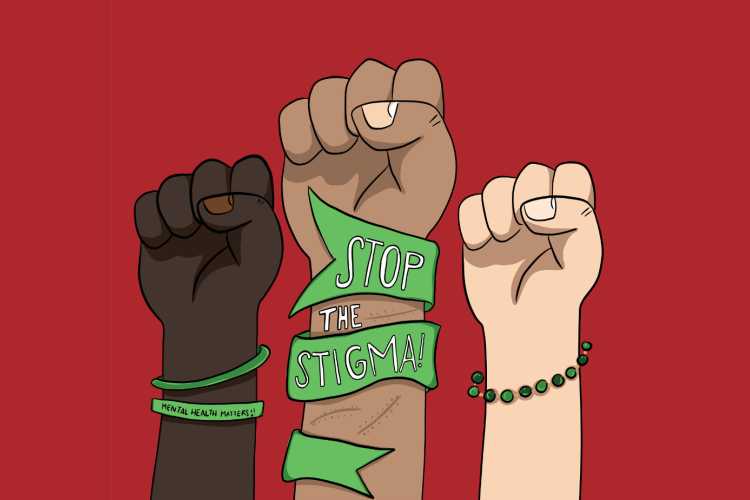
 | This learning module is part 1 of Partnering with Youth and Young Adults to Transform Mental Health Narratives. |
Helping Youth Help Themselves
Empowering youth to help themselves is a fundamental aspect of fostering independence, resilience, and personal growth. Empowering youth to help themselves requires care, patience, understanding, and commitment. The appropriate tools, guidance, and support can transform the way youth and young adults navigate mental health challenges with more confidence.
Here are four keys for helping youth and young adults build a mental health toolset:
1. Develop healthy habits as a basis for our overall health.
Helping individuals practice healthy habits can make a great impact on their overall well-being. This includes,
- Balancing proper nutrition - This doesn’t mean a strict diet, but learning how to balance different types of food to support the body’s essential functions. It’s okay to treat yourself and eat something that might not be considered “healthy.” One of the greatest pleasures in life is enjoying a delicious snack or meal. It’s important to consider that overeating junk foods can be bad for your mental health. These foods can lead to inflammation in the brain and ultimately result in depression, fatigue, anxiety, and stress. Explore more here.
- Getting some physical activity - Regular exercise alone can improve self-esteem by releasing “feel-good chemicals.” Other benefits may include experiencing better sleep, improving mood, and reducing stress. A little can go a long way. This can look like just going for a walk around your neighborhood, taking out your dog, or doing some stretching, yoga, etc.
- Getting better sleep - For most of us that is about 8 hours. Sleep quality is strongly linked to mental health.
2. Building a system of support.
Going through mental health challenges can be difficult and knowing who is available to provide support can make a meaningful difference. Young people deserve a team.
- To trusted adults (including relatives, friends, teachers, mentors, neighbors, program staff, etc.) - Remain supportive, non-judgmental, and curious/open. Focus on communication that creates an environment where young people feel comfortable to explore their mental health without fear of criticism or punishment. Dig deeper.
- To young people - Look out for individuals in your community who are supportive and have good communication with you. Remember: Never be afraid to ask for help! You are not alone – there are people here to support each other. Consider coming up with a list of three trusted adults you can reach out to if/when you need.
3. Get in the practice of celebration, starting with the smallest achievements.
When experiencing a mental health challenge, getting out of bed everyday itself can feel like a major accomplishment. Whether it’s a small triumph or a major accomplishment, acknowledging efforts and successes reinforces self-worth. For example, landing a new job must be celebrated, and in the cases when that does not happen, feel proud for applying and getting an interview.
4. Avoid social comparison, instead reaffirm that everyone’s path is different.
Social comparison in the digital age is a major contributor to experiencing anxiety, depression, feeling lonely, and FOMO (fear of missing out). Life is not a race – everyone has different goals, on different timelines. Spend time identifying and dedicating time to new projects, exploring hobbies and interests, or being in community with others. And sometimes, we just need to be kindly reminded that the number of likes on a post shouldn’t determine your happiness. More tips from the Greater Good Magazine are here.
About the Author
Ana Jose Fernandez (She/Her/Ella), is a junior at the University of Arizona majoring in Medicine with a minor in Spanish. She is passionate about serving her community by being an advocate who strives to make healthcare services accessible to anyone regardless of age, gender, sexuality, religion, race, documentation status, etc. Also, she shares her ideas about how to reduce homelessness with the Youth Action Committee of her city and she loves to combine the areas of healthcare and homelessness and show others how these are very interconnected.
